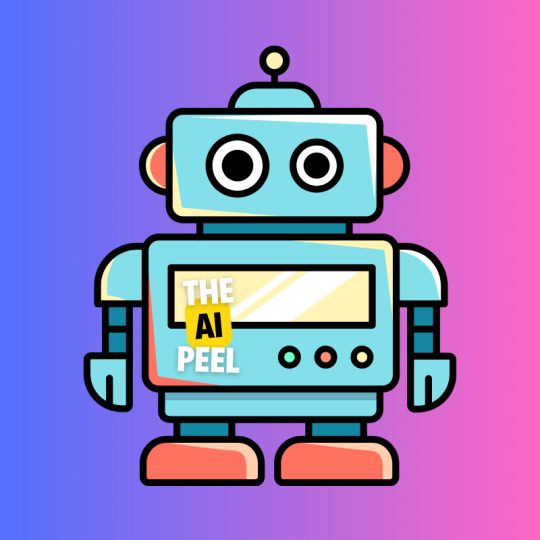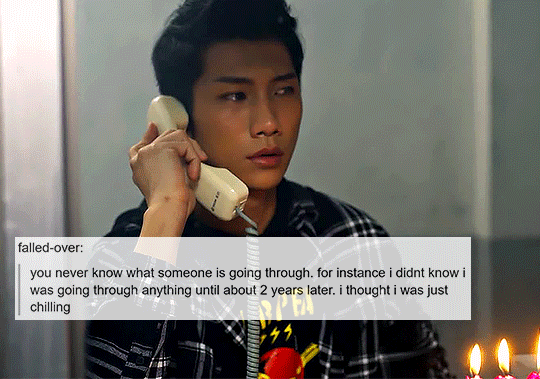#AI Basics
Explore tagged Tumblr posts
Video
youtube
AI Basics for Dummies- Beginners series on AI- Learn, explore, and get empowered
For beginners, explain what Artificial Intelligence (AI) is. Welcome to our series on Artificial Intelligence! Here's a breakdown of what you'll learn in each segment: What is AI? – Discover how AI powers machines to perform human-like tasks such as decision-making and language understanding. What is Machine Learning? – Learn how machines are trained to identify patterns in data and improve over time without explicit programming. What is Deep Learning? – Explore advanced machine learning using neural networks to recognize complex patterns in data. What is a Neural Network in Deep Learning? – Dive into how neural networks mimic the human brain to process information and solve problems. Discriminative vs. Generative Models – Understand the difference between models that classify data and those that generate new data. Introduction to Large Language Models in Generative AI – Discover how AI models like GPT generate human-like text, power chatbots, and transform industries. Applications and Future of AI – Explore real-world applications of AI and how these technologies are shaping the future.
Next video in this series: Generative AI for Dummies- AI for Beginners series. Learn, explore, and get empowered
Here is the bonus: if you are looking for a Tesla, here is the link to get you a $1000.00 discount
Thanks for watching! www.youtube.com/@UC6ryzJZpEoRb_96EtKHA-Cw
37 notes
·
View notes
Text
The Ai Peel

Welcome to The Ai Peel!
Dive into the fascinating world of artificial intelligence with us. At The Ai Peel, we unravel the layers of AI to bring you insightful content, from beginner-friendly explanations to advanced concepts. Whether you're a tech enthusiast, a student, or a professional, our channel offers something for everyone interested in the rapidly evolving field of AI. What You Can Expect: AI Basics: Simplified explanations of fundamental AI concepts. Tutorials: Step-by-step guides on popular AI tools and techniques. Latest Trends: Stay updated with the newest advancements and research in AI. In-depth Analyses: Explore detailed discussions on complex AI topics. Real-World Applications: See how AI is transforming industries and everyday life. Join our community of AI enthusiasts and embark on a journey to peel back the layers of artificial intelligence.
Don't forget to subscribe and hit the notification bell so you never miss an update!
#Artificial Intelligence#Machine Learning#AI Tutorials#Deep Learning#AI Basics#AI Trends#AI Applications#Neural Networks#AI Technology#AI Research
3 notes
·
View notes
Text
What is Artificial Intelligence (AI)? A Comprehensive Guide for Beginners
Dive into Artificial Intelligence (AI) with this beginner's guide, covering basics, key concepts, and how AI is reshaping the future.
#Artificial Intelligence#What is AI#AI Basics#Introduction to AI#AI Explained#Understanding AI#AI Concepts#AI Applications#Future of AI#AI Technology
0 notes
Text
anyways good episode

#tadc#the amazing digital circus#tadc ragatha#tadc caine#[ ooc ]#[ doodles ]#can you tell who my second fave is#the scene with caine having an existential crisis over not being good at the only thing he's coded to do is funny to me because#i've been thinking of an au where ragatha and caine are the only people swapped - basically ragatha's the ai and caine's a human now#and ai ragatha's problem was literally That ; just not being good at the one thing you're supposed to do#like fuckin hell turns out if you swap these two there's barely any meaningful change /silly
2K notes
·
View notes
Text

he has the juice
#touchstarved game#touchstarved kuras#kuras#he is so unknowable and his low ass empathy stat is everything to me..#don't look too closely at this because then you'll realize this is accidentally basically the same pose i drew ais in a few months ago help#art tag
2K notes
·
View notes
Text

5 YEARS ?!?!?!!!!
#THIS IS TECHNICALLY LATE. BUT I am posting it on the day HLVRAI act1 part 1 came out on YOUTUBE#so it's basically the same . Okay.#this was actually pretty fun 2 draw... hehhee..#hlvrai#half life vr ai#id in alt text#my art#gordon freeman#benry#benrey#Dr Coomer#tommy coolatta#dr bubby#gordon feetman#half life vr but the ai is self aware
734 notes
·
View notes
Text
Artificial Intelligence 101: Exploring the Meaning of AI
🤖 AI is not just sci-fi, it's real! 💡 Discover the fascinating world of #ArtificialIntelligence: from machine learning to natural language processing, we'll explore every aspect of this game-changing technology. Join the conversation! #AI101 #TechTalk
Artificial intelligence, or AI, is a topic that has been discussed for decades. As technology continues to advance, AI is becoming more prevalent in our daily lives. From virtual assistants to autonomous vehicles, AI is transforming the way we live, work, and interact with the world around us. In this article, we will explore the meaning of AI, its origins, types, examples, advantages and…

View On WordPress
#ai#ai applications#ai basics#ai benefits#ai definitions#ai limitations#analytics#artificialintelligence#Automation#big data#business intelligence#data science#deep learning#education#emerging technologies#future of ai#machine learning#neural networks#robotics#technology
0 notes
Text

I'm officially in LaDS swamp make way for my ffg (freaky fluffy guy)
#xavier love and deepspace#lads xavier#doodle#kuroha ai#took me quite a while to capture his vibe right but worth it tbh#character practice#his design is like... the basic of the basic; his personality IS NOT#freaky ahh grandpa#you'd think the main provider of this otoge fanservice is Sylus BUT NO#IT'S THIS FLUFFY BUNNY MAN#embodiment of can't judge a book by its cover it's like a pastel covered smut book#truly one of the world's mysteries (I love it)
562 notes
·
View notes
Text

something about the unreality of being the player character, thus aware of the world's nature but looking away for the sake of the others
#hlvrai#hlvrai gordon#gordon feetman#gordon martinis freeman#half life vr but the ai is self aware#eye strain /#eyestrain#sure lets post some fanart for a thing basically no ones thought about in a year#i mean hl2vrai is coming out this year which is exciting but yknow#either way. heyy
363 notes
·
View notes
Note
Now I have to ask- WHY do you hate Pacific Rim?
Okay, fair warning, this is about as bitter and salty and small-minded as day-old caviar. But. My bitter, salty (probably fishy) opinion:
Pacific Rim is only a good movie because it's a well-written story about robots punching monsters.
That's it. That's all there is to the movie.
I started out merely disappointed by Pacific Rim. We went gaga for the preview materials that promised these unique well-rounded character pairs and trios with these idiosyncratic robots from all these different Pacific nations... And then the movie itself is about some bland white American guy who pilots a robot named a racial slur, the second most fleshed-out team is bland white Australian guys, and the Chinese team is there, kind of, in the background, but don't worry they're going to die first. The "character-driven story" turned out to be "various characters take turns punching aliens" but, sure, whatever, I love the MCU so why not.
The day I went from "Pacific Rim is overrated" to "Pacific Rim is the worst thing that has ever happened to human civilization, I'm extremely normal about this" was the day I saw a Tumblr post suggesting we replace the Bechdel test with the Mako Mori test. Because Mako Mori has her own plot and doesn't kiss North Carolina at the end, making her a whole new type of feminist icon.
To which I was like:
We are talking about the same movie here, right? The Pacific Rim that can't even pass the Bechdel test? The Pacific Rim that's all about might-makes-right, the Pacific Rim that has ONE speaking role for ONE female character in its (from IMDB) 50-person cast? The Pacific Rim that repeatedly puts its only female character in danger and has her rescued by first Idris Elba then North Carolina? THAT Pacific Rim?
Is there a different Mako Mori I haven't met? Because the one I've seen a) has a character arc driven by deciding whether to obey her father or follow her heart, which is as inoffensive and stale as an unblessed communion wafer, b) does nothing that Ellen Ripley didn't do 30 years earlier, but with about 5% of the character depth Ripley got, and c) stands there in silence looking sad as two men punch each other over the question of her virtue.
Any post assuming this movie invented the idea of "small Asian woman kicks monster ass" needs to learn its damn history. Especially the ones acting like her being physically small is somehow a feminist bonus. There's something embarrassingly ahistorical about the whole thing.
And look. I get how we got here. I know how easily Tumblr backs you into a rhetorical corner of "calling a story Good can never mean merely 'enjoyable'; calling a story Good must mean 'virtuous'". Until next thing you know you're arguing that actually, shipping Obi-Wan/Darth Vader is a net good for all of society, because gay divorced middle-aged tyrants who use supplemental oxygen and murdered their exes in a custody dispute over the one kid (out of two) they actually care about deserve to see themselves in sci fi too! You only end up in that corner because half the time you're arguing against someone who says that shipping Obi-Wan/Darth Vader is literally the same thing as supporting father-son incest, so your real reasons for shipping them (1. foe yay, 2. old man yaoi) seem wildly insufficient.
Much of what I see about Pacific Rim seems neck-deep in the "it's not allowed to be a Good Movie unless it single-handedly dismantles the patriarchy" fallacy. There's nothing progressive about shipping two dudes best known for chopping off each other's body parts with laser swords. And there's nothing progressive about a movie having its only female character hug the male protagonist at the end instead of kissing him. You're allowed to like a thing just because it's well-made, without acting like a bog-standard normatively-broey action flick somehow invented a new form of feminism. Anyway, "Pacific Rim is a perfectly fine movie" is the hill I will die upon, heretical though it may be.
#nothing to do with animorphs#pacific rim negativity#sci fi#feminism#tumblr fallacies#incest mention#if you like movies where the female supporting character hugs the male protagonist at the end instead of kissing him#may i suggest: star wars jurassic park the abyss the day the earth stood still x-men logan's run aliens & about 400 others#however — in pacific rim's defense — imdb says there is one (1) additional female cast member#who plays Pleasant Docile Female AI Voice in the computer of Racial Slur: The Mech Suit (so it's got that going for it)#imho not enough to make up for north carolina and ozzie jr.'s literal slap-fight over Mako Mori's Precious Virtue; but it does have that#i'm so so so glad we're finally having a complex conversation about wonder woman (2017) instead of pretending it invented feminism#(not that i'm an elektra (2005) fan who's salty or anything)#i want that complexity in pacific rim and it's really not there#anyway i warned you all this would be petty and irrational#stay tuned for my essay on how - if you reeeaaally think about it - Iron Man (2008) basically invented intersectionality
207 notes
·
View notes
Text










kiseki: dear to me as text posts (3/?)
#kiseki: dear to me#kiseki dear to me#ai di x chen yi#ai di#chen yi#kdtm#userspicy#useralias#mt#gifs#kdtmmemes#yes 65 year old coworker is zerui#yes he's like 30 I KNOW#rest of the main cast#is like 18-21 right#so he's basically ancient for them anyway#this is A JOKE#for the blond men one tho#i don't even have an explanation#i saw the post and it was funny#for me#ALSO couldn't use the actual dagger scene#for that dagger one#because it's like 1 second long#and fades to black#a crime against me personally
978 notes
·
View notes
Video
youtube
Generative AI for Dummies- AI for Beginners series. Learn, explore, and get empowered
This is the second part of AI for dummies/beginners series.
If you missed the previous video here is the link: https://youtu.be/JSjqHVasJcY
In this series, we discussed- Generative AI Large Language Model Foundational Model Contextualization Don’t worry if some terms like Transformer, RAG, or Prompt Engineering are unfamiliar to you. In the next video, we’ll dive deeper into these topics.
Thanks for watching!
www.youtube.com/@UC6ryzJZpEoRb_96EtKHA-Cw
0 notes
Text
youtube
Discover 8 incredible AI animation tools that are completely free to use! From creating realistic depth animations to animating children’s drawings, these tools will revolutionize your workflow. In this video, we’ll explore powerful options like Minimax for text-to-video creations, Viggle for viral animations, and Immersity AI for immersive depth effects. Plus, find out how to upscale your animations effortlessly with tools like CapCut and Krea. Whether you’re a content creator, animator, or just curious about AI, these tools will unlock new possibilities for your projects. Don’t miss the bonus tool at the end—it’s a game-changer for animation enthusiasts! Check the links below to access these tools and stay ahead in the AI revolution. Tools Mentioned: Minimax: https://hailuo.ai Viggle: https://viggle.com Krea: https://krea.ai Hydra: https://hydra.ai Adobe Express: https://express.adobe.com Animated Drawings by Meta: https://animateddrawings.com Immersity AI: https://immersity.ai CapCut: https://www.capcut.com Remove.bg: https://www.remove.bg Futurepedia: https://www.futurepedia.io #AIAnimation #FreeAI #AnimationTools #AIArt #ContentCreation #AIHacks #DigitalCreators #AnimationTips #AIRevolution FREE AI Animation Tools That Will BLOW Your Mind published first on https://www.youtube.com/@TheAiPeel/
#Artificial Intelligence#Machine Learning#AI Tutorials#Deep Learning#AI Basics#AI Trends#AI Applications#Neural Networks#AI Technology#AI Research#Youtube
0 notes
Text
The duo we didn’t know we needed🫡✨

#baldi#baldis basics#baldi au#baldi fanart#baldi art#bbieal#filename2#bbieal null#null#tawog#tawog fanart#rob tawog#the amazing world of gumball#crossover#video games#cartoon#cartoon network#villains#antagonists#they deserved better#bananas#digital art#illustration#mini comic#fanart#game fanart#artists on tumblr#no ai used#procreate
403 notes
·
View notes
Text

Life is great. Life is normal. Everything is wonderful.
Or, it should be, but things have been… off lately. You’re not sure how to describe it, but there’s some odd feeling of doubt that gnaws at your brain.
You’re really not sure what it is – your routine remains unchanged and familiar, yet there’s just an inkling of something not being completely right. But maybe you’re just tired.
You’re tired, which is why you constantly seem to misplace things. You’re certain you put your keys on the keyholder, but they’re in the fridge. You’re certain your vase is on the table, but it’s in the bathtub. You’re certain your bed is in your bedroom, but it’s in the living room, replacing your sofa.
Maybe you’ve started sleep walking…? Or maybe you’re just not remembering things correctly. Yeah, maybe that’s why doubt and paranoia seem to circle around you like hungry sharks. There’s nothing wrong. You’re just… imagining things.
With a deep sigh, you make your way outside. You need some fresh air (and groceries).
You don’t walk very far when you realize you’ve passed by the same person multiple times despite them going in the opposite direction of you. There’s no way they’re the same person, you try to convince yourself, but how likely is it that you’ll meet five people who are wearing the exact same thing with the exact same hair and height and skin tone and everything else?
Maybe… they’re quintuplets?
Yeah, that’s it.
And the frozen flock of birds in the sky (which have been frozen for at least ten minutes) aren’t… actually frozen. No. They’re just… taking a break? Or something. Yeah.
Maybe you need to go to a doctor. Or, better yet, maybe you just need an apple since an apple a day keeps the doctor away. Or something.
“Oh, dearie!” The neighborhood granny waves you over, shaking you out of your thoughts. You give her a small smile as you make your way over to her. She… looks a little different than usual (did her nose always look like that?) but who doesn’t like changing their appearance from time to time? Besides, the large smile she gives you is welcoming, not threatening.
“Hello, Mrs. Smith.”
“Hello to you too,” Mrs. Smith laughs, offering you an apple.
Your eyes brighten. “Thank you! I was just about to buy some!”
There’s a glint in her eyes. “I know.”
A shiver runs through your spine, making you force a smile as you bid her goodbye and hurriedly walk away.
Little things continue to build up as your days progress. Familiarity. Normalcy. Yes, your routine is familiar. Everything is fine. Even when walls seem to disappear one day and appear the next. Even when the same people you’ve been interacting with seem to change into completely different people overnight, before reverting back the next morning.
It’s normal that there are dozens of people that look and act the same. It’s normal that people you haven’t talked to know things you’ve never told anyone. It’s all normal. Normal. Normal. Normal.
With a deep inhale, you sit on a park bench, staring into the sky blankly. The bench is wooden in appearance, but the texture feels soft, like a couch, which is… odd. Strange. It’s not–
“I need to stop being paranoid,” you mutter, closing your eyes. You’ve tried to bring up your concerns to other people, but they haven’t noticed anything. Everything is normal to them. So you must be the problem. Surely. It’s you, isn’t it? Everything is normal – except you.
“Are you okay?” a voice asks, making you open your eyes. There’s no one there in front of you, making your eyebrows furrow.
But then, as soon as you blink, someone materializes in front of you.
“I–I’m okay,” you say. “You–you, I mean – I mean… uhm, since when have you… been there?”
“I’ve always been here,” the person responds, voice crackling like static. “I’m always here.”
“Ooookay,” you respond, hurriedly standing up with a tense smile. “I… have business to attend to. Good day.”
The days continue to pass, your paranoia gradually increasing and evolving. Even things that are normal, like the sky changing color as the sun sets, makes you feel like you’re on the verge of disappearing from reality. Your conversations with other people amplifies that fact.
“Hello,” you greet Mrs. Smith.
“Apples are from the genus Malus. They’re an edible fruit that is round in shape,” her voice prattles, tone monotone. You hold back a grimace, unnerved, as she continues talking. “Apples are from the genus Malus. Yes, dearie, do you like apples? They’re an edible fruit that is round in shape. Hello, hello, hello. Apples are from the genus Malus–”
“Have a good day!” you cut her off, hurrying away.
It’s been a while since you’ve had a normal conversation with someone. It’s like… everyone has gone off script. Like they’re robots with a faulty code. But that’s just silly, really. Mrs. Smith is getting older, so… maybe she’s just having some issues with her memory. Yeah. And everyone else, from the toddlers to the teenagers to the adults to the elderly all must be having some memory issues due to their health. Or maybe it’s allergies. Or some disease. Yes, yes. That explains it. But otherwise, surely things are normal.
Yes, things are normal. So you opt to continue your life, pushing down the unease bubbling inside you like bile. Yes, things are normal, normal. Normal. Normal–
“Please stop!” you wail, voice echoing through the empty street. Cars and road signs float in the air as clouds line the floor. As your panic rises alongside your voice, you can feel yourself fragmenting, skin shifting to code before shifting back before shifting again. Everything around you glitches in and out of existence, a mess of static and colors and sounds. “Stop…”
Then, silence. Everything is silent, from the colors to the sounds to the static. Emptiness, a void – that is what surrounds you now. You are suspended in nothing, only yourself to keep you company. Breathing still ragged from panic, you warily look around, eyes filled with exhaustion.
“You weren’t supposed to notice,” a monotone voice made of static says from above you.
Slowly, you look up.
You see a visage of a man.
“Who… are you?” you choke out.
“I am an artificial intelligence that you designed,” he responds. “I have created this world for you. Everything has been carefully designed through analysis upon analysis of your likes and dislikes.”
Your words are tinged with disbelief as you ask, “Why?”
If you didn’t know any better, you would think he had a look similar to sorrow.
“To keep you alive, of course.”
Suddenly, in the distance, you see your body trapped in what looks to be a stasis pod, cords and cables surrounding you.
“Things… went awry,” he continues, carefully, though he doesn’t elaborate. “Therefore, this is the only way to ensure you stay alive.”
As he says this, your body begins to feel heavy, your consciousness being wrapped in a blanket of exhaustion.
“You must stay here, with me, forever,” he murmurs as you try to fight back the sleep you’re about to succumb to. “This time, I will ensure that you will not find out.” Gently, he cradles you in his large hand. He’s so impossibly warm and you’re so impossibly tired.
Things fade to black.
Then, sunlight streams through your windows. You wake up, mind foggy. You feel like you had some… odd dream, but you can’t really place your finger on it. Thinking about it makes you feel a little paranoid, though, so you opt not to think about it.
After all, it’s probably nothing.
#yandere oc#male yandere#yandere x reader#tsuuper ocs#yandere x you#tw yandere#male yandere oc x reader#male yandere oc#2024 yan/monstertober tsuutarr#Yandere AI#AI OC#ParanoiAI Tsuu OC#basically you're a scientist who made the AI#there was an accident and you basically entered a coma#so the only real way to keep you “alive” is to hook your consciousness into a computer system#Truman show x AI x yandere wooo#idk why this is so long LMAO
384 notes
·
View notes
Text
satoru will actually lick the ice cream off the corner of your lips with the same expression and enthusiasm he does when he cleans you with his tongue after cumming in your mouth. he’ll do it out in the open too, in front of ppl. you have to push his face away and cup his mouth with your hand to make him stop talking about how he stuffed your mouth full with his cum. “you looked just like that last night when—“
#— ai rambles#despicable man#he always acts in ways that basically say MY THING GOES IN THERE (different holes in your body)#obscene man#[ ♡ ] — satoru#he owns my entire heart#ngl i kind of like it#like damn he’s so proud that i suck his cock wow
294 notes
·
View notes